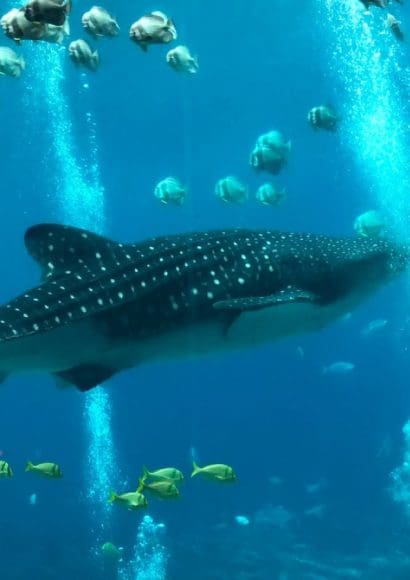
Beneath the shimmering waves of our oceans lies a world of wonder and mystery. Imagine a place where vibrant corals dance, and schools of fish create a mesmerizing underwater ballet. This magical realm is home to a myriad of creatures, from the tiniest seahorses to the majestic whales.
But what goes on beneath the surface? How do scientists unlock the secrets of the deep blue? Join us on a journey as we dive into the heart of the oceans, exploring the fascinating realm of marine ecosystems. In this article, we’ll unravel the tales of researchers who, like underwater detectives, study and protect the incredible life hidden beneath the waves.
Contents
The Importance of Research in Marine Ecosystems.🐟
Dive with us into the enchanting world beneath the waves, where the magic of marine ecosystems unfolds. Imagine a bustling underwater city, where fish of all shapes and sizes mingle, and corals create a kaleidoscope of colors. Understanding this vibrant world is like solving a captivating puzzle, and scientists play the role of puzzle solvers, exploring the deep seas to unravel its secrets.
Discovering Diversity Below the Surface.
The ocean is not just a giant pool of water; it’s a bustling neighborhood with inhabitants big and small. From the tiny clownfish to the colossal whales, marine ecosystems host a rich tapestry of life. Coral reefs, often referred to as the rainforests of the sea, provide shelter to countless marine species. Exploring the diverse habitats within the ocean showcases a vast array of marine life, each playing a unique role in maintaining the delicate balance of this watery world.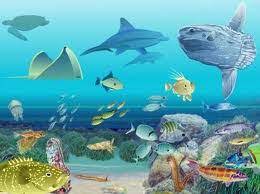
Understanding Biodiversity and Health.
Now, you might wonder, why do we need to study these underwater neighborhoods? Well, it’s like taking your car to the doctor for a check-up. The health of the ocean directly affects the health of the entire planet. By researching marine ecosystems, scientists can uncover valuable insights into the biodiversity and overall well-being of the oceans. This knowledge is crucial for making informed decisions to protect our seas and ensure a healthy environment for generations to come.
Recent Discoveries Making Waves in Conservation.
In the realm of marine research, each dive into the unknown brings the possibility of groundbreaking discoveries. Recent findings have provided new perspectives on marine conservation. For instance, researchers have uncovered the importance of certain species in maintaining the balance of marine ecosystems. These revelations influence conservation efforts, guiding us toward more effective strategies to protect our oceans and the incredible life they harbor.
Connecting the Dots: Research, Conservation, and You
As we navigate the depths of marine research, it’s important to recognize our role in this grand underwater narrative. By understanding the significance of marine ecosystems, we become stewards of the oceans, contributing to their well-being. So, the next time you wonder about how to find the best fishing spots in rivers, remember that a healthy ocean is the key to abundant marine life, providing you with not only great fishing but a thriving planet for all. Let’s embark on this oceanic journey together, embracing the wonders beneath the waves and cherishing the importance of marine research for a sustainable future.
Techniques and Technologies Used in Marine Research.🐟
From the tip of the fishing rod to the edge of the oceans, marine research has evolved with tools and technologies that seem straight out of a science fiction movie. In this section, we will unravel the mystery behind the advanced techniques scientists employ to unveil the secrets of marine ecosystems.
Modern Tools.
At the heart of modern marine research are tools that defy the limits of imagination. Autonomous Underwater Vehicles (AUVs), small unmanned vessels that dive into uncharted depths, are like curious eyes exploring where humans cannot reach. Satellites, from their orbits in space, provide us with a celestial view of the oceans, revealing patterns and changes that escape the naked eye from the surface.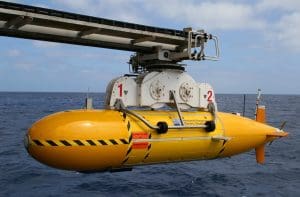
Research Projects: Exploring Secret Habitats.
Some scientists have taken marine research to new heights, or rather, new depths. An exciting project utilized AUVs to plunge into the depths of the Mariana Trench, the deepest part of our oceans. These small vessels not only mapped the ocean floor but also discovered new species of marine life, demonstrating how technology can open doors to previously unknown worlds.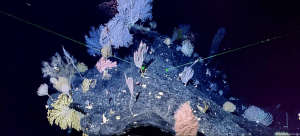
Reflection on the Technological Revolution.
The advancement of these techniques not only means astonishing images of marine creatures and ocean beds; it represents a revolution in our understanding of the oceans. The ability to dive and explore with high-tech tools provides us with an unprecedented perspective. Marine research is no longer confined to the surface; now, we can unravel the mysteries of the depths, understanding the complexity of marine ecosystems in a more detailed and precise manner.
Connecting the Natural World and Fishing: Tips for Kayak Fishing
Now, if you’re thinking of taking your love for the oceans to the next level and wondering about Tips for kayak fishing, technology is also on your side. Utilize the information gathered by these tools to find the best spots for fishing in rivers, lakes, and seas. By understanding underwater habitats, you can enjoy a more rewarding and sustainable fishing experience.
Challenges and Threats Faced by Marine Ecosystems.🐟
Our oceans, once thought to be boundless and invincible, now face a myriad of challenges that threaten their delicate balance. In this section, we will delve into the pressing issues that plague marine ecosystems, exploring the impact of climate change, pollution, and overfishing.
The Ripple Effect of Climate Change.
As our planet warms, the oceans bear the brunt of climate change. Rising sea temperatures disrupt the lives of countless marine species, from majestic coral reefs to the smallest fish. The once harmonious dance of the underwater world is now disrupted, as creatures struggle to adapt to these changing conditions.
Pollution Perils.
The oceans, vast and seemingly infinite, are not immune to the consequences of human activity. Pollution from plastics, chemicals, and oil spills casts a dark shadow over marine life. Imagine a sea turtle mistaking a plastic bag for a jellyfish or a school of fish navigating through a polluted sea – these are the stark realities faced by our oceans today.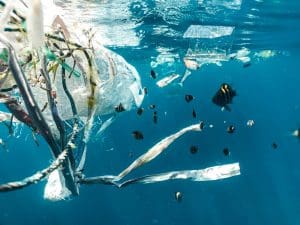
The Overfishing Challenge.
In the pursuit of seafood, our oceans are being pushed to their limits. Overfishing disrupts the natural balance of marine ecosystems, depleting populations of vital species. The interconnected web of marine life is at risk, impacting not only the fish but the entire ecosystem that relies on their presence.
The Crucial Role of Research.
In the face of these challenges, research emerges as a beacon of hope. Understanding the impacts of climate change, pollution, and overfishing is the first step towards devising effective solutions. By conducting research, scientists can unravel the complexities of these issues and propose strategies to address and mitigate the threats facing our oceans.
Innovative Projects Seeking Solutions.
Numerous research projects are actively seeking innovative solutions to protect our oceans. For instance, initiatives employing coral reef restoration techniques aim to rejuvenate damaged reefs, providing a lifeline for the marine life that depends on them. Other projects focus on developing sustainable fishing practices, showcasing that research-driven solutions can pave the way to a healthier future for our oceans.
Key Questions about Marine Ecosystems.🐟
What are the main threats to marine ecosystems?
In the vast and diverse world of the oceans, threats loom over marine ecosystems. Factors such as climate change, pollution, and overfishing pose significant challenges. Ocean warming affects marine life, pollution impacts water quality, and overfishing disrupts ecosystems. Addressing these threats is crucial to preserve the richness of marine life and ensure the health of our oceans for future generations.
How does marine research contribute to ocean conservation?
Marine research plays a fundamental role in ocean conservation. By understanding the impacts of climate change, pollution, and overfishing, scientists can propose effective conservation strategies. Research on marine biodiversity, coral reef health, and species migration helps inform sustainable management policies. Research not only reveals the challenges but also sheds light on the path toward solutions that promote the preservation and regeneration of our valuable marine ecosystems.
Which marine species are studied in marine ecosystems research?
The richness of marine life is astonishing, and research on marine ecosystems encompasses a variety of species. From vital microorganisms in the food chain to majestic whales that roam the oceans, each species plays a crucial role in the ecosystem’s balance. Scientists study everything from small fish to microscopic organisms to understand the complex interactions and dependencies that sustain marine life. Exploring these species not only enriches our knowledge but also contributes to effective conservation strategies to protect marine biodiversity.


